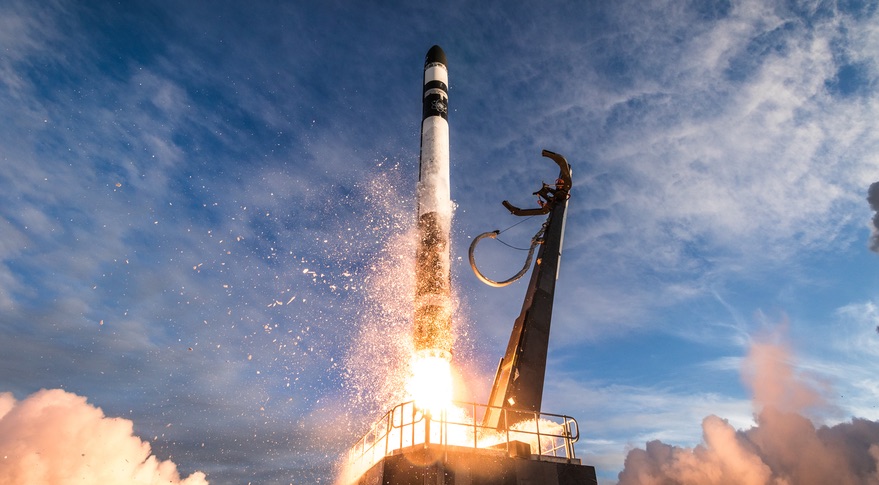Rocket Lab Launch of DARPA Satellite Slips

WASHINGTON — Rocket Lab's first launch of the year, which was scheduled for late February, has been pushed back to the second half of March because of the delayed arrival of its payload, an experimental military satellite.
The Defense Advanced Research Projects Agency said March 5 that its Radiofrequency Risk Reduction Deployment Demonstration, or R3D2, satellite arrived in New Zealand March 4 to begin integration with Rocket Lab's Electron vehicle. The launch from Rocket Lab's Launch Complex (LC) 1 in New Zealand is now scheduled for the second half of March.
Rocket Lab confirmed the new schedule March 6. "Following a delay to payload arrival, the R3D2 spacecraft is now at LC-1 and integration is underway," the company tweeted. In a later statement, the company said the launch would take place between March 16 and 30 (U.S. time), with four-hour windows each day from 6:30 to 10:30 p.m. Eastern.
Related: Rocket Lab and Its Electron Booster in Photos
When Rocket Lab announced the launch in January, the company was targeting late February for the launch. However, a DARPA spokesperson said that the launch was postponed "to provide the prime contractor with additional time to complete payload and spacecraft validation and verification."
Northrop Grumman is the prime contractor for R3D2, which will test technologies for deployable antennas. Once in orbit, R3D2 will deploy a Kapton membrane that will expand to a diameter of 2.25 meters to demonstrate the ability to small satellites to carry large deployable antennas needed to support high-bandwidth communications.
The 150-kilogram satellite will be the only payload on the launch, the first for Rocket Lab since an Electron launch in December that carried more than a dozen small satellites. The company said in January that the mass and volume of R3D2 took up the entire capacity of the rocket, leaving no room for secondary payloads.
Get the Space.com Newsletter
Breaking space news, the latest updates on rocket launches, skywatching events and more!
Rocket Lab said in January that the launch would be the first of 12 the company plans to perform in 2019 as it shifts into full operations. Most of those launches will take place from LC-1 in New Zealand, although the company intends to carry out at least one launch from its new launch site, LC-2, under construction at the Mid-Atlantic Regional Spaceport on Wallops Island, Virginia. The first launch from that site is scheduled for this fall.
Rocket Lab didn't indicate if the delay in the DARPA mission would impact those plans. In a January interview, Rocket Lab Chief Executive Peter Beck said the company expected to increase its launch rate over the course of the year to allow it to reach that total of 12 even though the first launch was, at that time, not scheduled until late February. Beck said that, by the end of the year, Rocket Lab expects to be launching Electrons at a rate of one every two weeks.
- Read SpaceNews for the Latest Space Industry News
- Rocket Lab's 1st Commercial Launch in Pictures: 'It's Business Time'
- Rocket Lab Aims to Win Cubesat-Launching Race
This story was provided by SpaceNews, dedicated to covering all aspects of the space industry.
Join our Space Forums to keep talking space on the latest missions, night sky and more! And if you have a news tip, correction or comment, let us know at: community@space.com.

Jeff Foust is a Senior Staff Writer at SpaceNews, a space industry news magazine and website, where he writes about space policy, commercial spaceflight and other aerospace industry topics. Jeff has a Ph.D. in planetary sciences from the Massachusetts Institute of Technology and earned a bachelor's degree in geophysics and planetary science from the California Institute of Technology. You can see Jeff's latest projects by following him on Twitter.










